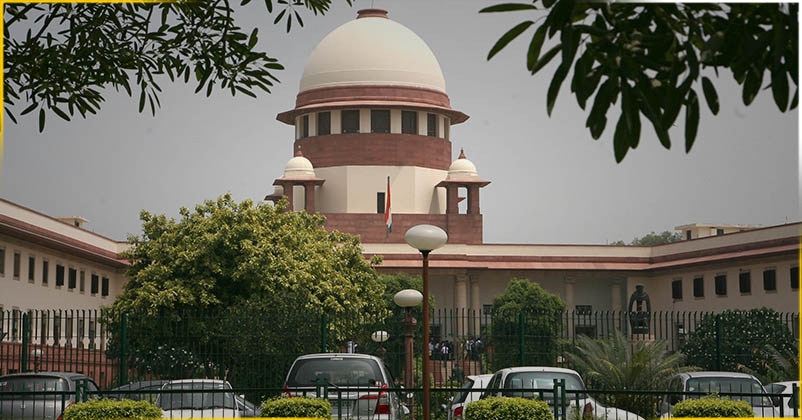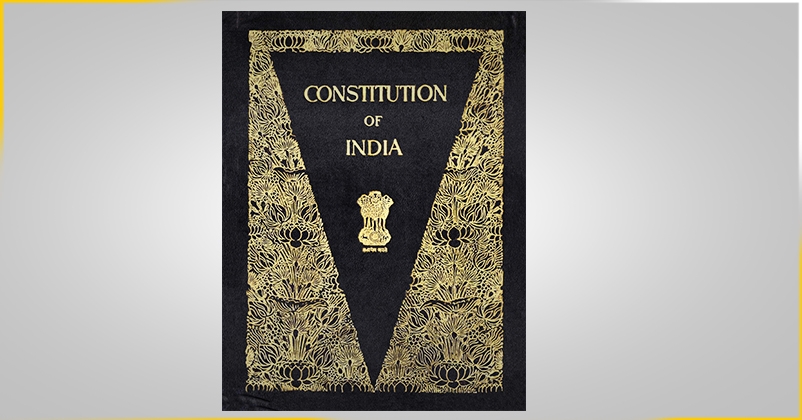| 30-Jul-2019 |

SC Verdict Analysis
“Large no. of residents of J&K took a loan from State Bank of India for numerous purposes by pledging their property, but on account of non-payment of loan amount and repeated reminders by the bank, SBI took the legal route provided under the SARFAESI Act and started the process of securitization of its debts. Loan defaulters challenged the process adopted by the bank where they pleaded that property of a permanent resident of J&K cannot be acquired by the non-JK resident. State H.C ruled against SBI. The appeal was finally settled by the Supreme court of India with some really interesting remarks on alleged Sovereignty of JK and people living therein.”
In its judgment titled “State Bank of India v. Santosh Gupta and Anrs” which Hon’ble Supreme Court decided in the backdrop of the appeals filed by various petitioners against the judgment delivered by the High Court of Jammu and Kashmir dated 16.07.2015. In the impugned Judgment High court held that Since various provisions of the SARFESI Act, 2002 collides with section 140 of the Transfer of Property Act of Jammu and Kashmir 1920 therefore, they are beyond the legislative competence of the Parliament, as a result, can not be made applicable in the state for banks which are of Indian Origin.
This judgment of the Supreme Court can be segregated into three parts. In the first part from Para 8 to 22 this judgment deals with the legislative competence of the Parliament. In the second Part from Paragraph 23 to 40 deals with the application of the SARFAESI Act in the State of Jammu and Kashmir. And in the last part at various places, Hon’ble Court dealt with the issues of alleged Sovereign absolute status of the state of Jammu and Kashmir and finally a conclusion.
· In some of the initial paragraphs of the Judgment Hon’ble Court made it very clear while refereeing to Article 1 of the Constitution of India and Section 3 of the Constitution of Jammu and Kashmir that:
· There is no dual citizenship in India like any other country and the permanent residents of the State of the Jammu and Kashmir are Indian Citizens.
· Even in the State of Jammu and Kashmir Quasi- federal Structure of the Constitution of India continues.
· Constitution of India and the Constitution of Jammu and Kashmir do not have equal status. (See Para 10)
Hon’ble Court also refers to the cases like Prem Nath Kaul v. State of Jammu and Kashmir and Sampath Prakash just to reiterate that though Art. 370 is a temporary provision but unless the consent of the constituent assembly is obtained it cannot be removed. (see para 11)
Hon’ble Court held that under Art. 370 no concurrence of state government is required to make any parliamentary legislation applicable in the state of Jammu and Kashmir if a matter is enlisted in the Union list or concurrent list as made applicable to the state of Jammu and Kashmir through Presidential Orders. And observed that the constitutional amendments are different in quality from an ordinary law and that the language of Proviso to Article 368 and Language of Art. 370 are different and have to be applied according to their terms.
It is held that by virtue of presidential order 1954 all the provisions of the Constitution of India as in force on 20th June 1964 together with certain amendments and modifications are made applicable in the state of Jammu and Kashmir. (See para 18)
Hon’ble Court found that whole of the Union list of the seventh schedule including entry 45 (banking) and 95 (Jurisdiction and powers of court except Supreme Court) of the Constitution of India is made applicable to the state of Jammu and Kashmir except entry 8, 9, 34 and 79 and some other entries with some modifications. While Entry 6 of the state list and Entry 11 A of the Concurrent list is not made applicable in the state of Jammu and Kashmir. (See. Para 19)
Hon’ble Court at paragraph 21 of the judgment summarized the legislative competence of the Parliament of India Vis –a- vis the State of Jammu and Kashmir in the following terms:
· All entries specified by the 1954 Order contained in List I of the 7th Schedule to the Constitution of India would clothe Parliament with exclusive jurisdiction to make laws in relation to the subject matters set out in those entries.
· Equally, under the residuary power contained in Entry 97 List I read with Article 248, the specified subject matters set out would indicate that the residuary power of Parliament to enact exclusive laws relating to the aforesaid subject matters would extend only to the aforesaid subject matters and no further.
· Parliament would have a concurrent power with the State of Jammu & Kashmir with respect to the 29 entries that are specified in the Presidential Order of 1954 under List III of the 7th Schedule of the Constitution of India. This would mean that all the decisions of this Court on principles of repugnancy applicable to Article 254 would apply in full force to laws made which are relatable to these subject matters.
· Every other subject matter which is not expressly referred to in either List I or List III of the 7th Schedule of the Constitution of India, as applicable in the State of Jammu & Kashmir, is within the legislative competence of the State Legislature of Jammu & Kashmir.
It is interesting to note that Hon’ble Court observed that even the matters which are in the state list can be made applicable in the state of Jammu and Kashmir by making necessary modifications in Union list or Concurrent list in terms of Proviso to Art. 368 of the Constitution and with the concurrence of the State Government. (Referred to the SampathPrakash case and Puran Lal lakhanpal case.). Hon’ble Court with reference to the application of state list in the state used the expression that “Noting can ever be frozen so long as the drill of Art. 370 is followed”. (See, Para 22.)
I. While dealing with the second aspect of the judgment, Hon’ble Court while referring to various judgments held that recovery of debt is a part of banking activity and therefore falls within entry 45 of Union list read with entry 95. (See para 24)
II. The Hon'ble court held that for the Purpose of SARFAESI Act the transfer of property, by way of sale or assignment, is only one of several measures of recovery of a secured debt owing to a bank. Therefore the SARFAESI as a whole cannot possibly be said to be in pith and substance, an Act relatable to the subject matter of transfer of Property.
III. In very clear terms court observed that Section 5 of the Constitution of Jammu and Kashmir which talks about the administration of justice will come into play only when Entries 45 and 95 of List I are not attracted. (See Para 38)
IV. Hon’ble Court while referring to the Rule 8 (5) Proviso of the Security Interest (Enforcement) Rules 2002, held that the above-said rule makes it amply clear that there is no collision or repugnancy of section 140 of the Transfer of Property Act of Jammu and Kashmir and the provisions of the SARFAESI. Hon’ble Court further clarified that section 5 of the Jammu and Kashmir Constitution will only operate in the areas in which Parliament has no power to make laws for the State.
V. Thus, anything that comes in the way of SARFAESI will necessarily have to give way by virtue of Article 246 of the Constitution of India as extended to the state of Jammu and Kashmir. (See Para 40)
VI. Court held that first an attempt to harmonize the section 140 of the Jammu and Kashmir Transfer of Property and SARFAESI has to be made if not possible then by virtue of Article 246 read with section 5 of the Constitution of Jammu and Kashmir Section 140 will have to give way to SARFAESI and not the other way round. (See Para 47)
Status of Jammu Kashmir and its Residents

Hon’ble Court further referred to the preamble of the Constitution of India and the Constitution of the Jammu and Kashmir and clarified that in the preamble of the Constitution of the Jammu and Kashmir there is no reference of expressions such as ‘Sovereignty’ or ‘Citizens’ which makes it amply clear that State of Jammu and Kashmir has no vestige of sovereignty outside the Constitution of India and its own constitution which is subordinate to the Constitution of India. (See para 42 and 43)
Hon’ble Court while referring to section 6 and section 10 of the Constitution of Jammu and Kashmir, in very strong language expressed that it is wholly incorrect to describe the State of Jammu and Kashmir as being Sovereign in the sense that its residents constituting a separate and distinct class in themselves. “The residents of Jammu and Kashmir we need to remind the High Court are first and foremost citizens of India”. (Para 43)
Hon’ble Court in para 46 of the Judgment outrightly rejected any application of the Art. 35A of the Constitution in the present case as it has nothing to do in the given set of circumstances.
Thus Hon’ble Supreme Court set aside the Judgment of High Court, as a result, the SARFAESI will remain applicable in the State of Jammu and Kashmir for all the purposes.
Delivered on: 16.12.2016